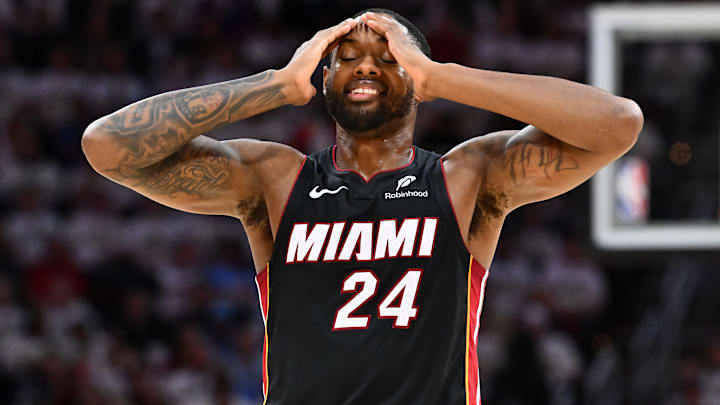The Miami Heat just traded Haywood Smith and a second-round pick to the Brooklyn Nets so that they could duck the luxury tax in advance of the 2025-26 regular season. Let’s not mince any more words: This is questionable, if downright terrible, asset management.
As ESPN’s Shams Charania noted, this is a financially motivated move for the Heat. They were around $1.4 million above the tax line prior to the deal, and are now around $4 million beneath it. That is more than enough to fill out their roster with the required 14th player, and remain outside the luxury tax.
So, you know, congratulations to owner Micky Arison, and his accountants!
For those of us less concerned with billionaire expenses, this deal should be considered a farce. Heck, it should be viewed as ridiculous even by those who were living and dying by Miami’s ability to get under the tax line.
Because no matter how you slice it, the timing of this trade makes zero sense.
The Heat did not need to duck the luxury tax now
Jokes about 1-percenter penny-pinching aside, skirting the tax is a perfectly reasonable endgame. The Heat pack more of an offensive punch following the Norman Powell acquisition, and their rotation could be among the deepest in the NBA. They still aren’t contenders.
Failing the acquisition of another true star, like the Wisconsin-based one with whom they are clearly obsessed, starting the repeater-tax clock this season defies logic. The Heat are, as of now, a middle-of-the-pack Eastern Conference unit. Team president Pat Riley and general manager Andy Elisburg are better off pitching Arison on paying the tax once they assemble a definitive championship hopeful.
Still, Miami has until the end of the season to sidestep the tax. And while it can be harder to shed money after the summer, the Heat were inside $1.5 million of slipping beneath it. They could have lopped off that amount at any point, and with minimal effort.
But wait, it gets worse for Miami
The inclusion of a 2032 second-rounder here is the vomit-coated cherry atop this cesspool-flavored sundae. Highsmith is a legitimately valuable three-and-D role player, on a team-friendly contract that pays him $5.6 million this season before coming off the books. Miami treated him like a net-negative asset.
Suffering a right knee injury during offseason training no doubt hurt Highsmith’s immediate value. He needed to undergo surgery, and the timeline for return could force him to miss all of training camp.
So what? As Tim Bontemps of ESPN explained, the Nets will probably wait out Highsmith’s return, and then flip him to a contender for more second-round equity, on top of the 2032 pick they already received. Miami could have followed this same course of action, and saved itself that second-round pick to help sweeten future deals. And who knows, another opportunity could have presented itself midseason that saw the team cut payroll without even having to jettison Highsmith.
Perhaps the Heat have another move lined up that will justify what is, for now, an egregious display of impatience. If they don’t, well, shame on them. This wasn’t a trade they had to make now—or even one they necessarily needed to make at all.
